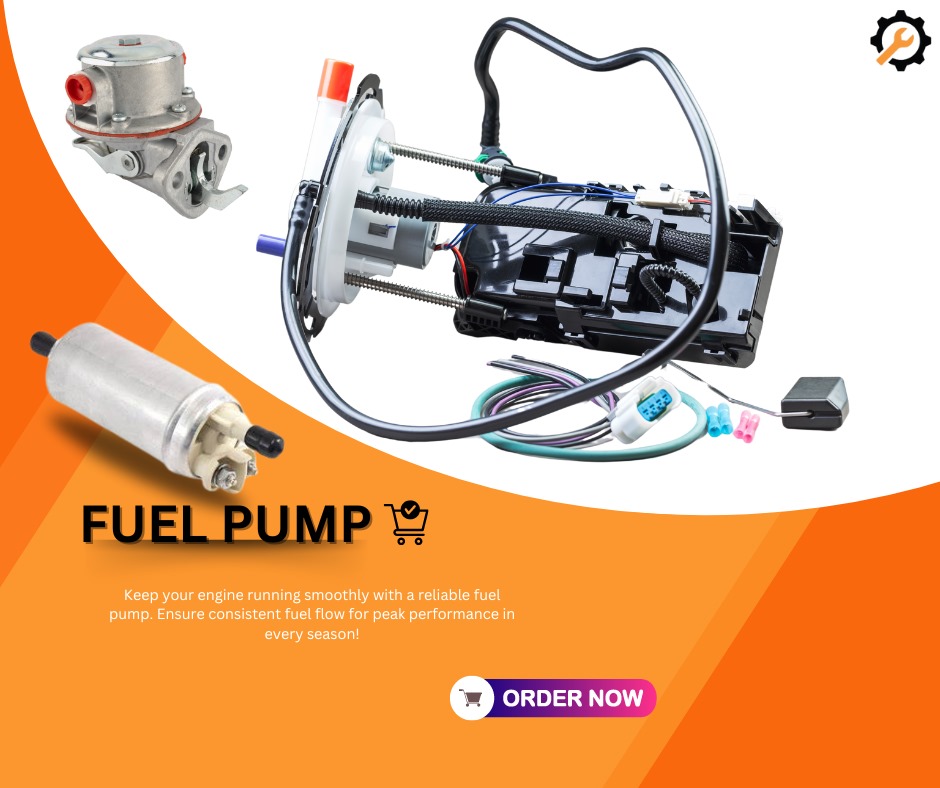How to Maintain Your Fuel Pump and Why Regular Service is Essential

Maintaining your fuel pump is crucial for ensuring the longevity and efficiency of your vehicle. The fuel pump plays a vital role in delivering gasoline or diesel from the tank to the engine, making it a key component in your vehicle’s performance. In this blog, we’ll explore how to maintain your fuel pump and the importance of regular fuel pump servicing.
Why Regular Fuel Pump Maintenance is Necessary
-
Prevent Fuel Contamination
- Regular fuel pump maintenance helps prevent the buildup of debris and sediment that can clog the fuel pump. Contaminated fuel can lead to poor engine performance, increased emissions, and even engine damage.
-
Ensuring Optimal Performance
- A well-maintained fuel pump ensures that the engine receives the correct amount of fuel at the right pressure. This is essential for optimal combustion and overall vehicle performance.
-
Extending Lifespan
- Regular servicing can significantly extend the lifespan of your fuel pump. Like any mechanical part, a fuel pump can wear out over time, but proper maintenance can delay this process.
-
Avoiding Costly Repairs
- Neglecting fuel pump maintenance can lead to expensive repairs. A failing fuel pump can cause engine stalling, poor acceleration, and other serious issues that can be costly to fix.
How to Maintain Your Fuel Pump
1. Regular Fuel Filter Replacement
A clean fuel filter is essential for keeping your fuel pump in good condition. Replace the fuel filter according to your vehicle’s manufacturer recommendations, typically every 20,000 to 30,000 miles. A clogged filter can put extra strain on the fuel pump, leading to premature failure.
2. Use Quality Fuel
Using high-quality fuel can make a significant difference in the performance of your fuel pump. Opt for fuels that contain detergents to help keep your fuel system clean. Avoid cheap, low-quality fuels that can introduce contaminants into your system.
3. Keep the Fuel Tank Full
Keeping your fuel tank at least a quarter full can help prevent the fuel pump from overheating. Fuel pumps rely on gasoline for lubrication and cooling. Running your tank low can cause the pump to work harder and lead to premature wear.
4. Inspect the Fuel Lines
Regularly inspect your fuel lines for leaks, cracks, or wear. Damaged fuel lines can lead to pressure loss and can put extra stress on the fuel pump. If you notice any signs of damage, replace the lines immediately.
5. Listen for Unusual Noises
If your fuel pump is making unusual noises, such as whining or grinding, it may be a sign that something is wrong. Pay attention to these sounds and consult a mechanic if you notice any changes. Early detection can save you from costly repairs down the line.
6. Schedule Regular Servicing
It’s essential to have your fuel pump checked during regular vehicle maintenance. Mechanics can perform tests to ensure the fuel pump is operating correctly and address any potential issues before they become major problems.
Conclusion
Maintaining your fuel pump is not just about keeping your vehicle running smoothly; it’s about preventing larger, more costly issues in the future. Regular service, quality fuel, and mindful driving habits can significantly extend the life of your fuel pump. Don’t overlook this crucial component of your vehicle—make fuel pump maintenance a priority!
By following these tips and understanding the importance of fuel pump servicing, you can ensure a more reliable and efficient driving experience. If you have any questions or need assistance, don’t hesitate to reach out to a trusted mechanic!

 Loading..
Loading..